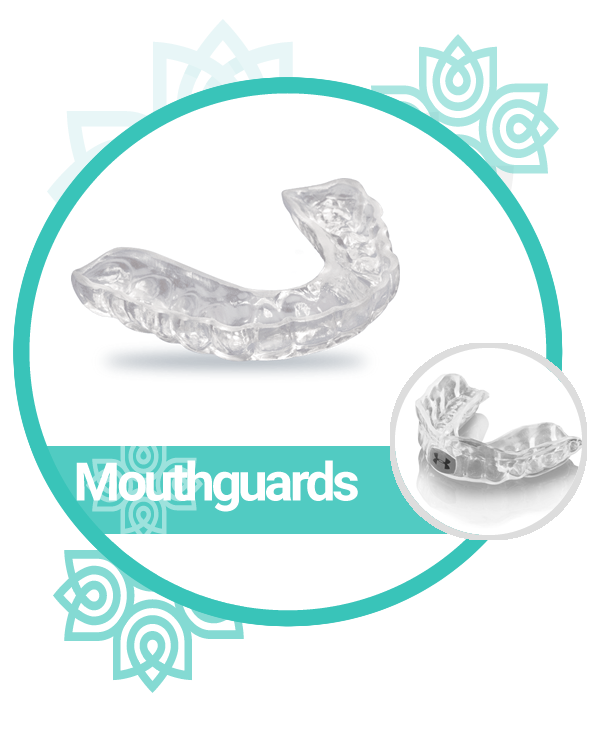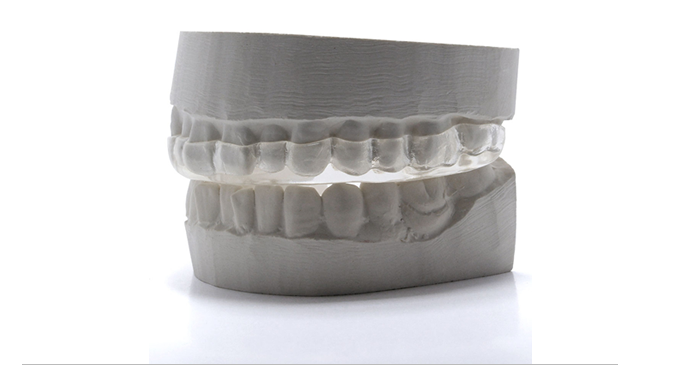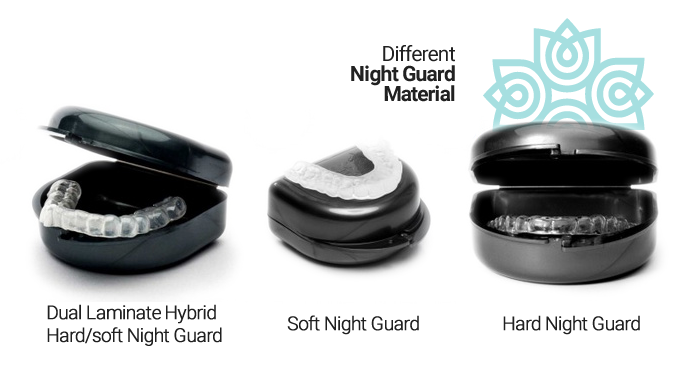
MOUTHGUARDS / APPLIANCES
BRUXISM IS ALSO KNOWN AS GRINDING AND/OR CLENCHING OF YOUR TEETH.
IT’S A VERY COMMON CONDITION THAT AFFECTS APPROXIMATELY 30 MILLION TO 40 MILLION CHILDREN AND ADULTS IN THE U.S.
There are several ways to alleviate the effects of bruxism. One of the most common, which your dentist may recommend, is a night guard. This is an appliance typically worn while sleeping through the night. missing teeth on the mandibular arch or on the maxillary arch.
BRUXISM SYMPTOMS
|
|
|---|---|
|
|
|
|
|
|
|
WHAT ARE DIFFERENT TYPES OF NIGHTGUARDS?
Night guards, also known as occlusal guards or dental splints, are dental appliances designed to protect the teeth and jaws from the damaging effects of teeth grinding or clenching, a condition known as bruxism. There are different types of night guards in dentistry, each with specific purposes and characteristics. Here are the common types:
- These are made from a soft, flexible material, typically a type of medical-grade silicone or rubber.
- Soft night guards are comfortable to wear and provide a cushioning effect for the teeth.
- They are often used for mild cases of bruxism or for patients with temporomandibular joint disorder (TMJ) symptoms.
- Hard night guards are made from rigid materials like acrylic or resin.
- They provide more durability and protection than soft night guards.
- Hard night guards are often prescribed for moderate to severe bruxism cases.
- Hybrid night guards combine both soft and hard materials. They typically have a soft inner layer for comfort and a hard outer layer for durability.
- These guards aim to strike a balance between comfort and protection.
- These night guards consist of two layers, with a softer inner layer and a harder outer layer.
- The soft inner layer provides cushioning for the teeth and jaws, while the hard outer layer offers protection against teeth grinding.
- OTC night guards are pre-made, one-size-fits-all dental appliances that can be purchased without a prescription.
- They are typically less expensive than custom-fit options but may not provide the same level of comfort and protection.
- OTC night guards are a more affordable alternative for individuals with mild bruxism.
- Bite splints are often used for patients with temporomandibular joint (TMJ) disorders.
- They are designed to alter the position of the jaw to relieve pressure on the joints and muscles.
- Bite splints can be custom-made or adjusted by a dentist to fit the patient’s bite.
- These splints are used to adjust the position of the jaw, particularly in cases of TMJ disorders and malocclusions.
- Repositioning splints are typically custom-made and require careful adjustment by a dentist.
WHY CUSTOM NIGHTGUARDS ARE ALWAYS BETTER THAT OTC NIGHTGUARDS
While over-the-counter (OTC) nightguards might seem like a convenient and cost-effective solution for protecting your teeth during sleep, there are several reasons why getting a nightguard made by a dentist is often a better option:
Dentist-made nightguards are custom-designed to fit your unique bite and dental structure. They are made based on impressions taken of your teeth, ensuring a comfortable and secure fit. OTC nightguards are typically generic and may not fit properly, leading to discomfort, difficulty breathing, and potential for worsening your bite.
A properly fitted nightguard provides effective protection against teeth grinding (bruxism) and clenching. Dentists can customize the nightguard to your specific needs, ensuring optimal coverage and protection for your teeth and jaw.
Dentist-made nightguards are crafted from higher-quality materials that are more durable and longer-lasting than those found in OTC options. This means your nightguard will withstand the forces of grinding and clenching for a longer period.
Dentists take into account any specific dental issues you might have, such as crowns, bridges, or dental work, when designing the nightguard. They can also adjust the thickness and design based on the severity of your bruxism.
When you consult a dentist for a nightguard, they will evaluate your overall oral health and examine your teeth and jaw. This can help identify any underlying issues that might be causing your bruxism, such as misaligned teeth or bite problems. OTC nightguards do not come with this level of professional evaluation.
If you experience any discomfort or issues with your dentist-made nightguard, your dentist can make necessary adjustments to ensure it fits perfectly. They can also provide follow-up care to monitor the effectiveness of the nightguard and address any concerns.
Bruxism can lead to tooth wear, jaw pain, headaches, and other dental problems. A dentist-made nightguard can help prevent these issues by providing a protective barrier between your upper and lower teeth, reducing the impact of grinding and clenching.
Dentists can tailor the material and design of the nightguard to your comfort preferences. This ensures that you are more likely to wear the nightguard consistently, which is crucial for its effectiveness.
Many dentist-made nightguards come with warranties or guarantees that offer peace of mind in case the nightguard needs repair or replacement.


















